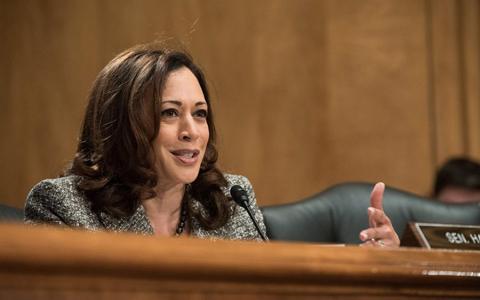
The VP debate provided little shock or surprise to economists who have been watching the long-term signal behind the noise. But confirmation is good.
Kamala Harris made the biggest impact by announcing that if her running mate Joe Biden is elected, he will rescind the Trump tax cuts "on day one."
The claim was quickly stepped back to avoid the appearance of raising taxes on the middle class in the wake of the COVID recession, but the implications were clear. Harris is eager to raise federal revenue through rolling back recent relief . . . and ultimately trillions of dollars of stimulus will require tough choices.
"The debate only played into what we are already seeing," says Astor Investment Management CEO Rob Stein. "Taxes in one form or another have most likely bottomed."
Stein says the real questions have shifted away from whether Washington would find the will to rein in deficits to how the burden will be distributed. It's all about the details now, whether Harris has any concrete input in White House policy or not.
He would know. His firm has been tracking its own proprietary macroeconomic index for the last two decades. Fluctuations in that benchmark drive Astor's dynamic allocation strategies to shield investors from weakness and ultimately enhance return visibility.
The goal is a smoother ride even if the world becomes a rollercoaster. Recently, the Astor team has spotted signs that the pandemic caused mostly "transient" shock to the economy . . . not so much the sustained and systemic hit of 2008 as a fleeting interruption in the long growth trend.
At least that's the theory. Their September update conceded that everything hinges on the job market and many industries are going to have a hard time recovering. I'm looking forward to the October installment to see what has changed in the intervening weeks.
In particular, we all need to know whether the absence of new stimulus will create the kind of economic tragedy that Fed chairman Jay Powell recently warned about. He wants to keep the cash flowing. The current Washington establishment doesn't seem to feel that urgency.
And that's where the VP debate comes back to the table. Harris is already looking toward a day when the federal government can raise taxes and start paying down the Treasury's newly bloated balance sheet. That might be a good thing from the POV of fiscal discipline, but until it happens, printing money means embracing inflationary risk.
"The House probably is equally as important to this outcome as the White House," Stein says. "That said, in almost any outcome I accept that inflation will ultimately finally rear its head."
Astor has worked hard to find ways to keep cash flowing above the ambient inflation rate. The firm's Active Income Strategy pays 2.7%. That's a precious thing now, and if taxes start edging up it's going to be even more precious down the road.



